Cefolac 200 Tablet
Cefolac 200 Tablet is an antibiotic medicine that belongs to the cephalosporin group of drugs. It is mainly prescribed for the treatment of bacterial infections affecting the respiratory tract, urinary tract, skin, throat, ears, and soft tissues. The active ingredient, cefixime, works by preventing bacteria from forming protective cell walls, thereby killing them and stopping their growth. Doctors recommend Cefolac 200 Tablet for mild to moderate infections, including pneumonia, tonsillitis, pharyngitis, bronchitis, sinusitis, and certain urinary tract infections. It provides reliable antibacterial coverage and is often chosen when first-line antibiotics such as penicillin are unsuitable. For maximum benefit, the medicine must be taken at the prescribed dose and for the full duration advised by the doctor, even if symptoms improve early. This ensures complete elimination of bacteria and helps prevent resistance. Cefolac 200 Tablet should be taken with food or as directed by a healthcare professional to reduce stomach discomfort.
Benefits
-
Provides effective treatment for bacterial infections
-
Useful in respiratory tract infections such as bronchitis and pneumonia
-
Helps in treating ear, nose, and throat infections
-
Effective in urinary tract infections
-
Provides relief from throat and tonsil infections
-
Useful in sinus infections
-
Beneficial in skin and soft tissue infections
-
Helps reduce fever and infection-related symptoms
-
Kills harmful bacteria and prevents spread
-
Provides broad-spectrum antibacterial coverage
-
Reliable option for patients allergic to penicillin
-
Reduces risk of complications from untreated infections
-
Improves recovery speed in bacterial illnesses
-
Helps restore normal breathing in chest infections
-
Provides convenient oral dosage for adults and children
-
Effective in both community-acquired and hospital-acquired infections
Possible Side Effects
-
Mild nausea or vomiting
-
Abdominal discomfort or cramps
-
Diarrhea or loose stools
-
Headache and dizziness
-
Loss of appetite
-
Bloating or indigestion
-
Skin rash or itching
-
Tiredness or weakness
-
Rare yellowing of skin or eyes
-
Swelling of lips, face, or throat in severe allergy cases
How to Use
-
Take orally with water as directed by doctor
-
Can be taken with or without food
-
Preferably consume after meals to reduce stomach upset
-
Follow the dose and duration strictly as prescribed
-
Do not skip or stop treatment midway
-
Complete full course even if symptoms improve
-
Do not crush or chew unless advised by doctor
How it Works
-
Inhibits bacterial cell wall formation
-
Kills bacteria and prevents further multiplication
-
Weakens bacterial survival mechanisms
-
Allows immune system to clear infection effectively
-
Provides bactericidal action for quick recovery
What to Avoid
-
Avoid self-medication without doctor’s advice
-
Avoid skipping doses frequently
-
Avoid combining with alcohol during treatment
-
Avoid taking expired tablets
-
Avoid giving medicine to others without prescription
-
Avoid stopping treatment suddenly
-
Avoid using for viral infections such as cold and flu
-
Avoid taking with strong antacids without doctor’s consultation
-
Avoid overdose beyond prescribed limit
-
Avoid self-treatment in recurrent infections
Safety Advice
-
Always take under supervision of healthcare professional
-
Inform doctor about ongoing medications
-
Pregnant and breastfeeding women should consult doctor before use
-
Elderly patients may need dose adjustments
-
Children should take only as per pediatric prescription
-
Report persistent diarrhea to doctor immediately
-
Keep hydrated during treatment
-
Store tablets in a cool, dry place
-
Do not share with others having similar symptoms
-
Complete full course to prevent antibiotic resistance
Precautions
-
Inform doctor if having kidney or liver disease
-
Report any history of severe allergy to cephalosporins or penicillin
-
Use cautiously in patients with gastrointestinal issues
-
Monitor for unusual tiredness or yellowing of skin or eyes
-
Report persistent abdominal pain or blood in stools
-
Avoid sudden discontinuation to prevent relapse
-
Inform doctor if diabetic, as medicine may alter lab test results
-
Inform doctor if taking blood thinners or heart medicines
-
Get medical advice in case of pregnancy or breastfeeding
-
Seek immediate help in case of allergic reaction
Vendor Information
- Address:
- No ratings found yet!



























































































































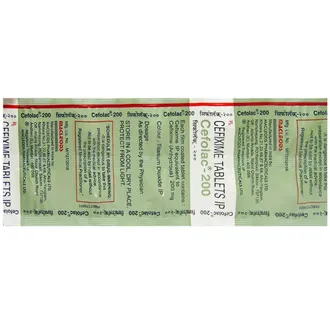
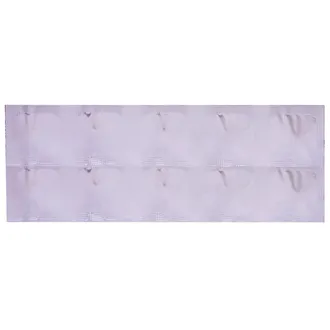
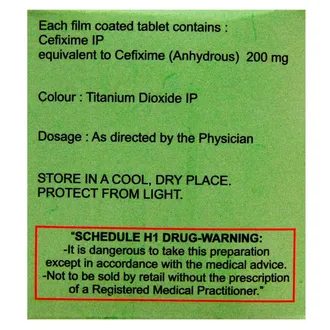

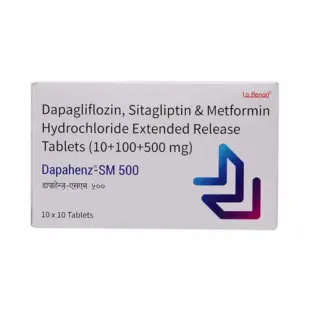

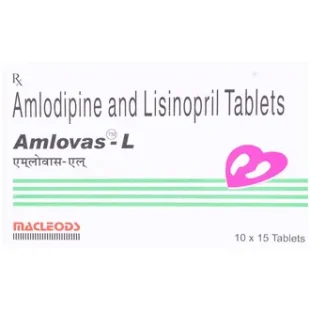
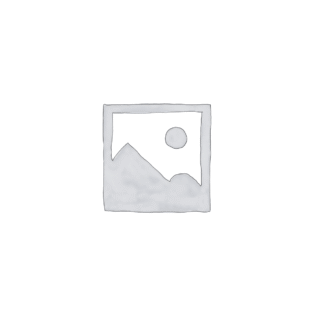
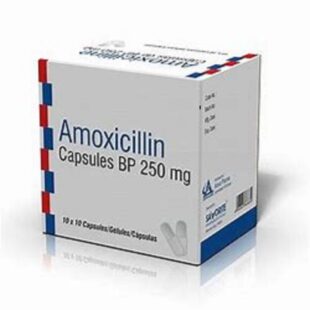
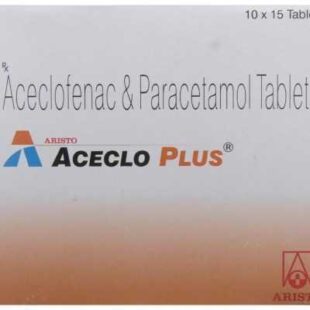
Reviews
There are no reviews yet.